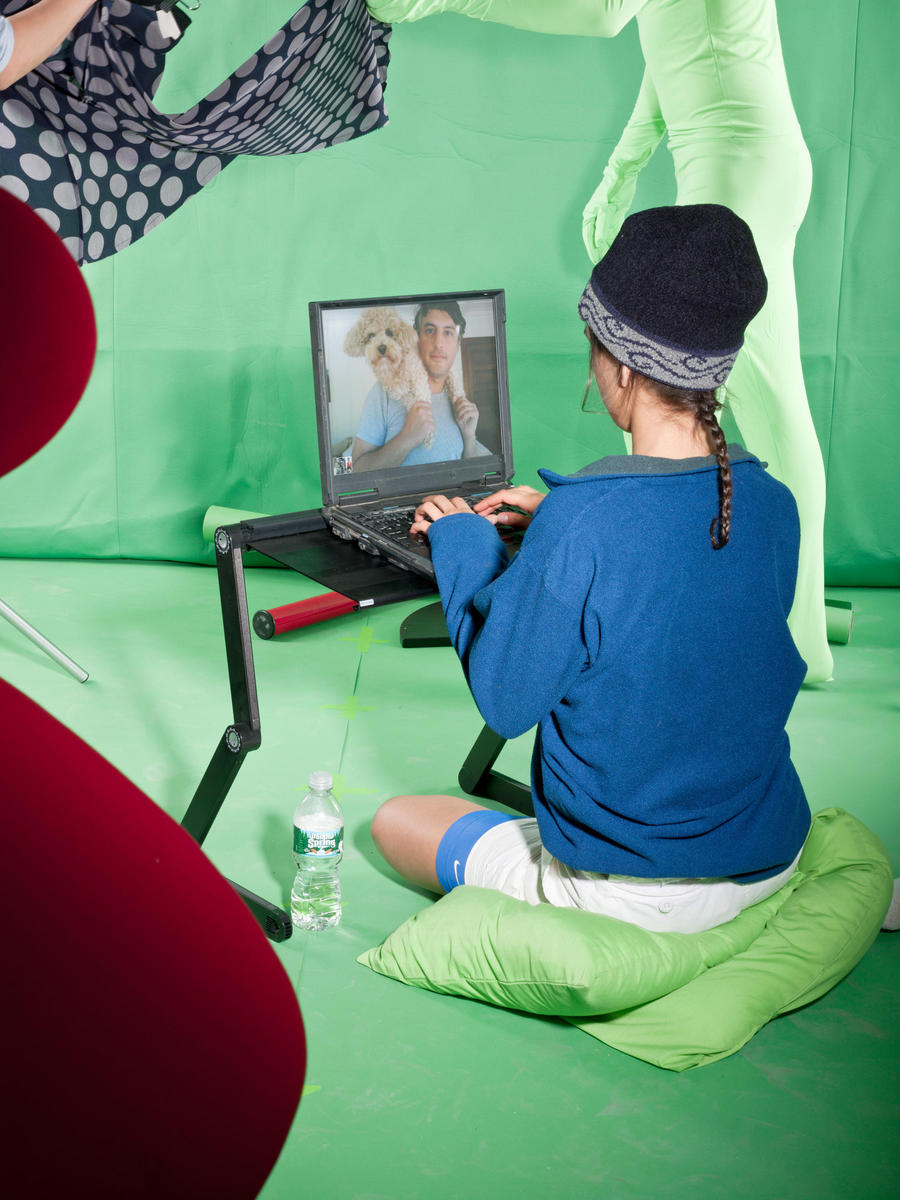
I don’t think Skype is a proper way to take a photo. I can’t even imagine how you’d do it. —Reza Aslan
Friends,
We set out to do something different this issue. To boldly go where no Bidoun has gone before.
Careful readers of this space might object that we say this every issue. They’re right. Over the past year we’ve been trying to revisit a lot of our assumptions about what a Middle Eastern art and culture magazine should be. We’ve talked more openly about the art market and our semiprecious stock in it. Sensitive to the charge that our righteous obscurity has blindsided our coverage of contemporary events, we devoted an issue to original reporting. Just last issue we unleashed a vast slew of stereotypical images all over our pages, suspending deeply held taboos on sex, the veil, Israel, and so on.
But this is it — the final frontier. (One of them, at least.) This time we’re taking on the paper pushers and the do-gooders, the experts and the engineers, the advocates and the doctorates. The ones who squeeze from the bottom of the tube. Or, as we’ve delicately termed them, SQUARES.
You might object to the name — squares does have a slightly negative connotation. We thought about calling the issue visionaries, actually. But another magazine beat us to it, as you can see from the cover. And we wanted to avoid one obvious pitfall in talking to people doing awesome things to change the world — that is, fall for their pitch. We wanted to know their stories, sure, but we also wanted to understand the drudgery. To go backstage and see how and where the sausages of change are made — in Damascene college dormitories and South Korean Internet cafés; on homemade desktop computers and handheld devices and beat-up laptops exhausted by one million PowerPoint presentations and speckled with Post-it notes; on marathon Skype meetings, and in the conference rooms of 2.5-star hotels in Virginia, where tables are laden with little flags, name tags, and millions of gallons of Evian.
The twenty-odd people you are about to meet do not have highly developed senses of irony, though most of them have a good sense of humor. There is Salman Khan — Bill Gates’s favorite teacher — a polymathic goofball and education innovator whose secret dream is to create an apocalypse-proof bunker for human knowledge. There is Naif Al-Mutawa, a Kuwaiti businessman and father of five who fights for truth, justice, and the Islamic way via his superheroic comic creations, The 99. There is Alex Mamytov, an activist trying to make Kyrgyzstan safe® for transsexuals, and Nazanin Afshin-Jam, a beauty queen who uses her celebrity to fight the Iranian government over the (disturbingly topical) issue of child executions. And there is the late Nader Khalili, an architect inspired by Rumi to create the perfect habitat for impoverished humanity.
Speaking of Sufis, Sheikha Fariha al-Jerrahi — leader of a band of American dervishes, who in another life made possible some of the most ambitious artworks of the twentieth century — is the subject of our most in-depth profile. But don’t neglect the birdwatcher and the space bureaucrat, the Syrio-Vulcan video game designer and the talk show host, as well as the band of world-music megastars on a mission. Last but not least, a brief history of the lingua franca of squaredom — Esperanto.
You will note a few things about the look of this issue. For one thing, the color green, and the computers, pioneering what we like to think of as perfectly fine art photography: the Skype portrait. For another — the drawings! Scores of them, an outpouring of original art that responded to an open call for illustrations on our Facebook page.
These practices were less an attempt to be true to the zeitgeist (though this crowdsourcing thing is working out great) than it was to find a mode of production appropriate to the theme. How best to picture things that don’t lend themselves to being pictured, people who are not defined by their appearance? We didn’t want to beautify or stylize things that had been chosen precisely not for their beauty or style — even the former Miss Canada, for whom beauty pageantry is merely a means to an end.
Thanks for reading,
The Editors